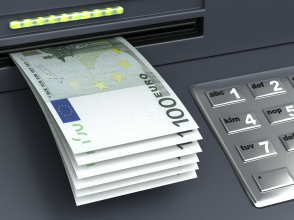
Crypto wallets - ensuring security and best practices for novice investors
 Cryptocurrency wallets are the gateway to managing and securing your digital assets. As a novice investor venturing into the world of cryptocurrencies, understanding the importance of wallet security and adopting best practices is paramount.
Cryptocurrency wallets are the gateway to managing and securing your digital assets. As a novice investor venturing into the world of cryptocurrencies, understanding the importance of wallet security and adopting best practices is paramount. In this article, we will guide you through the fundamentals of crypto wallets, explore different types of wallets, and provide essential security measures and best practices to protect your investments.
Crypto Wallets: Ensuring Security and Best Practices for Novice Investors
1. Types of Crypto Wallets:
🔹 Hardware Wallets: Physical devices that store your private keys offline, providing secure storage and protection against online threats.
🔹 Software Wallets: Applications or programs that can be installed on your desktop, mobile, or web browser, offering convenient access to your cryptocurrencies.
🔹 Paper Wallets: A physical printout of your private keys or recovery seed, making them offline and secure. These can be generated using various online tools.
🔹 Online Wallets: Wallets provided by cryptocurrency exchanges or third-party platforms accessible through the internet. While convenient, online wallets are considered less secure than other options.
2. Security Measures:
🔹 Strong Passwords: Use complex, unique passwords for your wallets, comprising a combination of uppercase and lowercase letters, numbers, and special characters.
🔹 Two-Factor Authentication (2FA): Enable 2FA for your wallets, adding an extra layer of security by requiring a verification code in addition to your password.
🔹 Offline Storage: Consider hardware or paper wallets for long-term and significant holdings, as they store your private keys offline, minimizing the risk of online attacks.
🔹 Regular Updates: Keep your wallets and devices up to date with the latest software and security patches to protect against known vulnerabilities.
🔹 Secure Internet Connection: When accessing online wallets or using software wallets, ensure you have a secure internet connection, preferably a private and trusted network.
🔹 Wallet Backups: Regularly backup your wallet's private keys or recovery seed and store them in a safe and offline location, like a hardware wallet or encrypted USB drive.
3. Best Practices:
a. Research Wallet Providers: Choose reputable wallet providers and read reviews from trusted sources. Stick to well-established wallets with a proven track record of security.
b. Multiple Wallets: Consider using multiple wallets for different purposes (e.g., one for long-term storage, another for daily transactions) to minimize exposure in case of compromise.
c. Beware of Phishing Attempts: Be cautious of phishing attempts, such as fake wallet websites or emails asking for your private keys or login credentials. Only access wallets through official websites or apps.
d. Be Mindful of Public Wi-Fi: Avoid accessing your wallets or performing transactions while using public Wi-Fi networks, as they may be compromised, leaving your funds vulnerable.
e. Verify Wallet Addresses: When sending or receiving funds, double-check the wallet address to ensure accuracy. Any mistake in the address can result in the loss of funds.
f. Keep Private Keys Private: Never share your private keys or recovery seed phrases with anyone. These are the keys to your funds and should be kept confidential.
4. Seek Professional Advice:
If you're uncertain about wallet security, consult with experts in the cryptocurrency field or seek guidance from professionals with experience in the industry. They can provide personalized advice and recommendations based on your specific needs and circumstances.
Conclusion about crypto wallets
Crypto wallet security is of paramount importance for novice investors venturing into the world of cryptocurrencies. By understanding the different types of wallets, implementing security measures, and following best practices, you can confidently manage and protect your digital assets.
Remember to prioritize security, stay informed about emerging threats, and continuously educate yourself about new technologies.
Other News

Add a review











 The rise of robo-advisors - how auto investing is changing the game
The rise of robo-advisors - how auto investing is changing the game How to assess the credibility - and track record of a HYIP program
How to assess the credibility - and track record of a HYIP program Realistic goals - setting realistic goals for online investments
Realistic goals - setting realistic goals for online investments Withdrawal Process - unveiling the withdrawal process in HYIP monitor
Withdrawal Process - unveiling the withdrawal process in HYIP monitor









